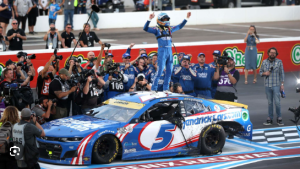
Oklahoma Sooners football has lost one of its greatest icons, as legendary coach Barry Switzer has passed away at the age of 86. Switzer, who led the Sooners to three national championships and became synonymous with college football greatness, died Monday morning at a hospital in Norman, Oklahoma, after complications from heart failure.
Switzer’s death has sent shockwaves through the college football community, as his impact on the game, the University of Oklahoma, and the sport as a whole is immeasurable. Known for his charismatic leadership, revolutionary offensive schemes, and ability to inspire players, Switzer’s legacy will live on for generations to come.
### A Legendary Coaching Career
Barry Switzer’s coaching career at Oklahoma spanned from 1973 to 1988, and during that time, he transformed the Sooners into one of the most dominant teams in college football. Taking over for Chuck Fairbanks, Switzer inherited a program already rich in tradition, but he elevated it to new heights with his innovative offensive strategies and exceptional leadership.
Under Switzer’s guidance, Oklahoma became a powerhouse, securing three national championships (1974, 1975, 1985), 12 Big Eight Conference titles, and an impressive 157-29-4 record. His distinctive wishbone offense, which focused on the triple-option running game, helped define a dynasty in college football and set Oklahoma apart from its competitors.
Switzer’s ability to recruit, develop talent, and foster a winning culture at Oklahoma made him one of the most respected figures in the history of the sport. His leadership was key to the success of some of the greatest players to ever grace the college gridiron, including Heisman Trophy winners like Billy Sims and Troy Aikman.
Switzer’s accomplishments at Oklahoma included leading the Sooners to a staggering 28 consecutive wins from 1973 to 1974, which helped solidify his place as one of college football’s most dominant coaches. He retired with an outstanding 3-1 record in bowl games and a lasting reputation as one of the all-time greats of the game.
### Switzer’s Influence Beyond Oklahoma
Though Switzer’s heart and soul were always tied to the University of Oklahoma, his impact extended far beyond the collegiate ranks. After retiring from Oklahoma in 1988, Switzer made a high-profile transition to the NFL, where he became the head coach of the Dallas Cowboys in 1994. His leadership helped the Cowboys win Super Bowl XXX in the 1995 season, adding another significant chapter to his legacy.
Switzer’s time in the NFL, while not as long as his tenure at Oklahoma, demonstrated his versatility as a coach. He led the Cowboys to three straight NFC Championship games, and his Super Bowl victory helped solidify his reputation as one of the most accomplished coaches of his era.
Even after his time with the Cowboys, Switzer remained a prominent figure in the world of football. He continued to offer his wisdom as a commentator, a mentor to younger coaches, and an advocate for the growth and development of college football.
### A Man of Influence and Character
Beyond his football acumen, Switzer was known for his larger-than-life personality. He was famous for his charisma, humor, and ability to connect with players, often becoming a father figure to many of the young men he coached. Switzer’s teams were known for their unity, and his ability to inspire loyalty among his players was unparalleled.
Switzer’s influence on his players extended far beyond the football field. Many former players have spoken over the years about how Switzer shaped their lives, teaching them lessons that would stay with them long after they left the game. His famous “family” approach to coaching made every player feel like they were an integral part of something bigger than themselves.
Switzer was also known for his love of Oklahoma and his pride in the Sooners program. He often spoke of his deep affection for the university and the state of Oklahoma, stating that being the head coach of the Sooners was the “greatest job in the world.” His devotion to his alma mater was evident in everything he did, and even after his retirement, he remained a fixture at Oklahoma games and events.
### Tributes Pour In from Across the Sports World
The outpouring of tributes from players, coaches, and fans has been overwhelming since news of Switzer’s passing broke. Former Oklahoma players such as Billy Sims, Jason White, and Adrian Peterson all expressed their gratitude and admiration for the coach who helped shape their careers.
“We lost a legend today,” said Sims, who won the Heisman Trophy under Switzer in 1978. “Coach Switzer was not just a coach to me, but a mentor, a guide, and a friend. His impact on my life, and the lives of so many others, is immeasurable. The Oklahoma football family will never be the same without him.”
Current Oklahoma head coach Brent Venables, who played for Switzer in the 1980s, also expressed his condolences, calling Switzer “the heart and soul of Oklahoma football.”
“Barry Switzer wasn’t just a coach; he was a pioneer,” Venables said in a statement. “He changed the game, and he made Oklahoma football what it is today. Our thoughts and prayers are with his family, and we’ll continue to honor his legacy as we move forward.”
NFL legends, too, paid their respects. Dallas Cowboys owner Jerry Jones, who worked closely with Switzer during his time with the Cowboys, called him “one of the greatest football minds of all time.” Jones described Switzer as “a true champion both on and off the field.”
“Barry Switzer was one of the most unique and successful coaches I’ve ever had the pleasure of working with,” Jones said in a statement. “He was an incredible leader who understood the game and had a profound impact on the players he coached. We’ll miss him, but his legacy will never be forgotten.”
### Switzer’s Family and Final Years
Barry Switzer is survived by his wife, Carol, and his three children. In his final years, Switzer spent much of his time enjoying his retirement, attending Oklahoma games, and participating in various charitable endeavors. Despite his many achievements, Switzer remained humble and focused on his family, his faith, and his love of the game.
Switzer’s health had declined in recent years, but he continued to stay active in the football world, often speaking at events and sharing his vast knowledge with younger generations. His passing comes as a shock to many, but it is a testament to the immense impact he had on the lives of those around him that tributes are pouring in from all corners of the football world.
### A Legacy That Will Live On
Barry Switzer’s passing marks the end of an era in college football, but his legacy will undoubtedly live on for decades to come. His contributions to the game—both as a coach and as a mentor—are beyond measure, and the Oklahoma Sooners program will always be indebted to him for the foundation he laid.
Switzer’s name will forever be etched in the annals of college football history, and his influence will continue to be felt at the University of Oklahoma and beyond. He is remembered not just for his three national championships, but for his pioneering approach to coaching, his commitment to his players, and his unwavering love for the game of football.
As the Sooners, the Cowboys, and the entire football community mourn the loss of a true legend, we can take comfort in knowing that Barry Switzer’s impact will be felt for many years to come. His contributions to the sport have left an indelible mark, and his legacy will forever be a part of the fabric of college football.
—
*Stay tuned to ESPN for further coverage of Barry Switzer’s passing and tributes from the football world.*







